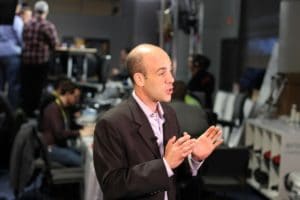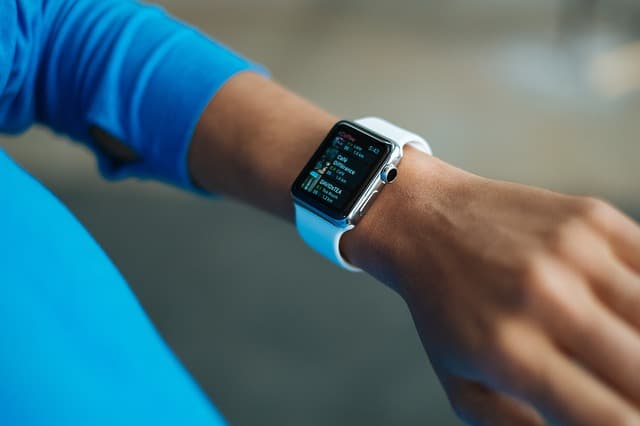Andy Jacob, American thought leader and stealth business consultant joins us today at our thought leader round table. Andy Jacob is a successful serial entrepreneur, and CEO of the The Jacob Group. Andy Jacob has helped countless entrepreneurs with their business strategies, and we are delighted to have him join us today. Andy Jacob is the Editor in Chief of DotCom Magazine, the founder of The Scottsdale Angels, the author of the Beautiful Startup Quiz, and CEO of the Jacob Group. Andy Jacob has been seen as a guest financial expert on numerous TV shows, and is actively engaged with multiple startups as an investor and advisor. Andy sits down at our round table to discuss influencer growth positioning, how his newest acquisition of DotCom Magazine can help entrepreneurs, and he talks about some of his newest predictions that have been making news in various think tanks.
Andy, tell us about your vision for DotCom Magazine, and your recent acquisition of the online property?
My vision for DotCom Magazine is to become a go-to online resource for entrepreneurs, thought leaders, startup visionaries, and influencers to have a place to get their news and stories out. As the CEO of the Scottsdale Angels, and author or the Beautiful Startup Quiz, I get a chance to speak to a lot of entrepreneurs. In my consultation and discussions with these dreamers and visionaries, one thing always is crystal clear: They always need help crafting their story, getting their story out for investors to hear, and help with guidance and strategy on the path to business success.
I acquired DotCom Magazine to be an outlet for all these great entrepreneurs to get their story out. We have begun partnering with other media outlets to help get interesting startups and entrepreneurs the coverage they deserve.
Andy, as the founder of the Scottsdale Angels, what is the number one thing you see that startups need help with?
Well, the startup entrepreneur’s framework typically always goes through similar cycles. From the conceptual idea to the business strategy, from the implementation of the idea to the many business pivots that many go through, I see many similarities with most startups. The thing that always amazes me is the level of complexity of many early pitches I hear. The pitch is the last place for
complexity. I can’t tell you how many pitch decks I see that do not get across to the reader what the founder is trying to accomplish, or what the business is about. Pitch decks are becoming a thing of the past anyway. I need to understand the business in 7 seconds or less.Twenty years ago, people called it an elevator pitch. I have rebranded it as a “micropitch”. If you can’t tell me what you do in 7 seconds or less, I’m not interested, and neither will most investors. I have had entrepreneurs spend an entire morning meeting trying to explain their business to me. What a bore and waste of time. If they can’t explain their business to me by the time I lift up my coffee cup, they haven’t really thought about their business in terms of micro pitching. We live in a time of what I call “speed multiplied”. There are thousands of good ideas. The question becomes, who can break through? Breaking through is not easy, and that’s why I wrote “The Beautiful Startup Quiz”. I wrote it to help entrepreneurs tighten up their pitches, tighten up their venture, tighten up their strategy, and eliminate as many mistakes as possible early.
Andy, let’s bounce to another subject. You have predicted the end of traditional television advertising as we know it. Based on some of your past predictions, many people in the field have taken notice. Can you elaborate?

Traditional .30 second and .60 second television adverting is almost dead. In the future, you won’t see any traditional “in-show”television commercials at all. All commercials will be 7 seconds or less, and the messages will actually come up as part of a split screen during network television shows. It will start during sporting events and roll over to regular programming. For example, during an NBA game, the commercials will appear on a split screen for 7 seconds while there is a break waiting for a free throw to be taken. The game will never be pulled away from. All advertising will be shown in game. It goes along with my thinking on micro pitching. It should only take anyone 7 seconds for anyone to describe what they do and influence the receiver of the information. The 7 second TV commercial will be even more powerful than .30’s as people are now programmed to consume information quickly. With that being said, and on the other end of spectrum, you will also see more 30 minute infomercials than ever before as some products are what I call “demonstration products”. So, you will have longer formats for demonstration products taking up full 30 minute programming, and shorter ones for everything else.
So, in the future, you will have 7 second commercials and 30 minute commercials, and nothing in between.
Andy, you took a lot of heat for predicting that e-commerce would break the trillion dollar ceiling way back in 2009. It was just released today that e-commerce pushed over 1 trillion dollars this holiday season alone. How did that prediction come about?
Well, at the time I had built an online lead exchange with a partner named Florin Ilie. Florin is a programming genius, and before we were acquired, I saw a tremendous amount of online leads coming through our exclusive exchange in 2007 through 2010. All I did was extrapolate our data, add a technology factor multiple , and it was easy to see where e-commerce was going. I casually mentioned the 1 trillion dollars in e-commerce at an event I spoke at in 2009, my prediction was published, other news organizations picked it up, and the rest is history.
Andy, you have recently spoke about artificial intelligence in the sales cycle, the changes in advertising over the next ten years, the coming explosion of implantables versus wearables, and artificial intelligence taking over the delivery and consumption space. Can you elaborate on how you believe AI will change the delivery and consummation space?

Right now, we buy on Amazon, get restaurant delivery, grocery delivery, auto supply replenishment at work, we press a button to get a driver delivered to our location to take us somewhere else, and buy cars from giant vending machines. So what’s next? AI will know what you need, when you need it, deliver it to you without thinking, and charge you the lowest price automatically. Soon, you wont even have to order things. AI will know your behaviors and likes and dislikes so well, it will know when to deliver, let’s say, flowers to your door, or steak for barbecuing with friends. I would think Amazon is already working on this, although they probably wouldn’t tell you as it’s scary sci-fi type thinking. Imagine inviting over 10 friends for a barbecue at your home. Through the interaction of everyone online combined with AI, you will be delivered the precise amount of food, drinks, and decorations at the exact time you need it, in the exact proportions necessary, with everyone’s dietary restrictions. And you will never click a button or actually order it. It will all happen automatically, it will charge you the lowest price automatically. Not to mention, the Barbecue will be an amazing success!
Andy, you have written on implantable’a versus wearables. Could you explain what this is to our readers?
Today, we have wearables that we wear. Apple watches, fitbits, andntracking devices. But to mention smart phones that I consider a wearable as they are attached to everyone at all times. I remember a time when there were no cell phones. In the future, people will remember a time when there were cell phones! Cell phones are going to be gone in the future. Everything will be accessible through technology implanted in people’s brain. All the worlds information that is now available on google, will be available simply by thinking about it through technology. I know this is scary for people to think about, and that’s why I want people to be aware of this technology as we have to decide as a society if this will be a good thing. The technology is already being developed in the medical field as people are now able to control their non-functioning limbs simply by thinking. In the future, there will be no smart phones. Small devices will be implanted that connect to your brain that will allow you to think and get answers, make calls, and talk to people. Technology will produce so many possibilities that in the future ,major geo-political decisions will have to be made wether to unleash the available technology or not. If you think cyber security is a large industry now, just wait another few decades.

Andy, thanks so much for sitting down at our Thought Leader Roundtable. You have given our readers a very interesting window into future possibilities, and you definitely have sparked some very interesting thought.






















